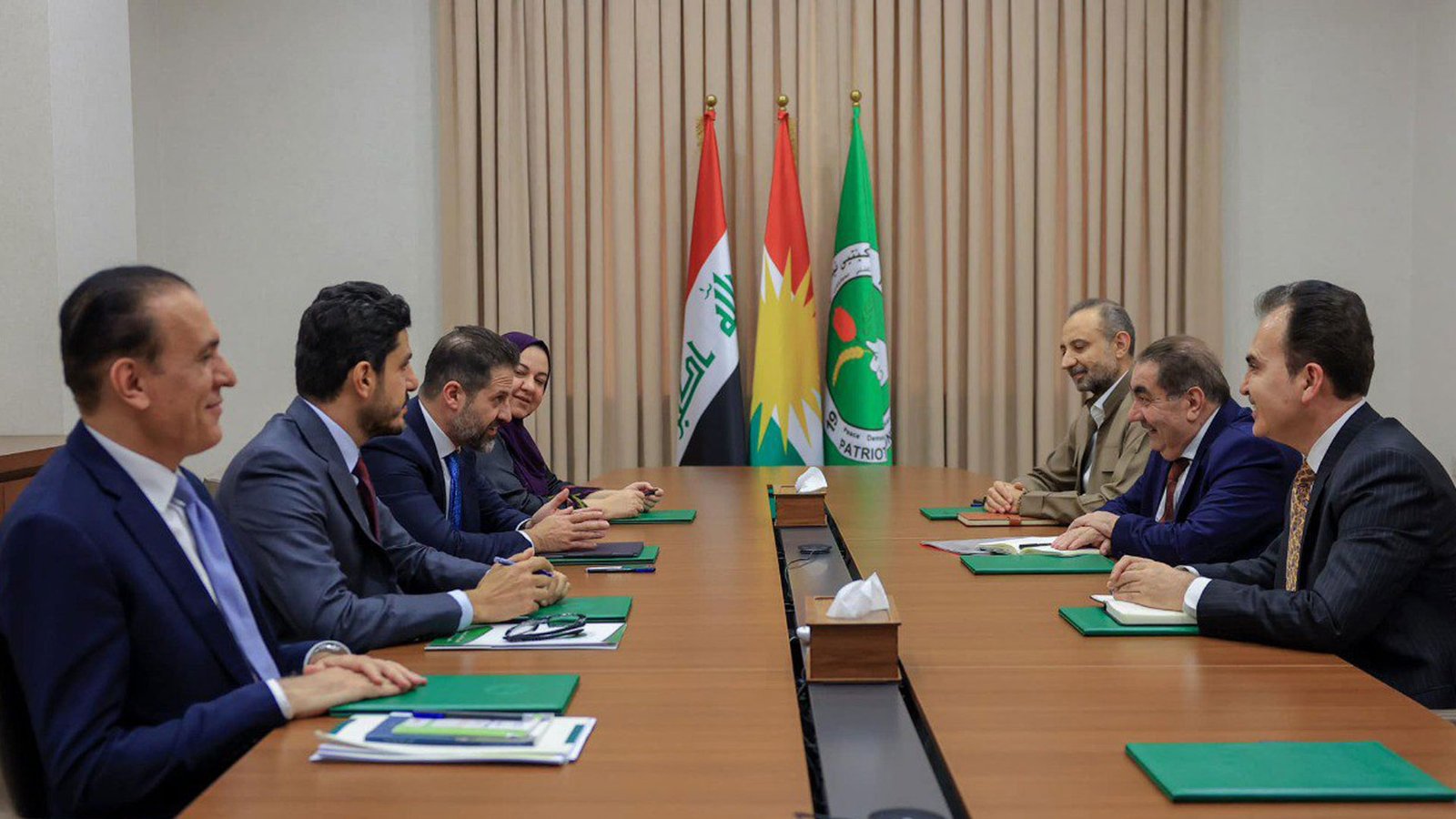Interior Ministry and Judiciary Emerge as Battlegrounds in KDP–PUK KRG Cabinet Negotiations

A month after the Kurdistan Democratic Party (KDP) and the Patriotic Union of Kurdistan (PUK)—the two main victors in the October 20 parliamentary elections—announced a preliminary agreement on a joint vision for power-sharing and governance, the process of forming the new Kurdistan Regional Government (KRG) cabinet faces renewed hurdles.
The two parties are set to meet on Tuesday to enter the next phase of cabinet formation: negotiating the distribution of ministerial posts and finalizing the composition of the new government.
Although the elections took place six months ago, the Kurdistan Parliament has convened only once—in early January—to formalize MPs’ memberships and trigger their salaries. Since then, progress on cabinet formation has stalled, and protracted negotiations are expected over the allocation of key ministries.
While elections occurred in over 40 countries worldwide during 2024, with cabinets formed in nearly all of them, Kurdistan remains the only political entity where, despite elections in 2024, the government formation process is still far from complete in mid-April 2025.
The KDP maintains that the positions of Prime Minister and President are non-negotiable, having already designated Masrour Barzani and Nechirvan Barzani respectively for these roles. This raises the question of how the PUK will be accommodated in other senior positions.
The PUK is considering several distribution models:
- A point-based system assigning different values to positions (Prime Minister, Deputy Prime Minister, ministers)
- A column system grouping positions (Prime Minister with certain ministers in one column, Deputy Prime Minister with others in another)
- Classification of positions into tiered categories (Lists A, B, C)
The KDP favors:
- A hierarchical classification (A, B, C) of ministries based on importance and influence, with Category A including Interior, Finance, Natural Resources, Peshmerga, and Justice ministries
| Position | Party | Status |
|---|---|---|
| Prime Minister | KDP | Masrour Barzani (non-negotiable) |
| President | KDP | Nechirvan Barzani (non-negotiable) |
| Interior Ministry | KDP | Currently Rebar Ahmed; KDP resistant to cede |
| Municipality Ministry | KDP | KDP aims to retain |
| Kurdistan Security Council | KDP | Vacant; de facto Waysi Barzani (PUK wants to negotiate) |
| Iraqi Presidency | PUK | PUK retains this position |
| Parliament Speaker | PUK | Power structure to be modified |
| Deputy Prime Minister | PUK | Increased powers in Sulaimani area |
| Deputy President | PUK | Agreed |
| Peshmerga Ministry | PUK | Offered by KDP |
| Natural Resources Ministry | PUK | Offered by KDP |
| Finance Ministry | PUK | Offered by KDP |
| Judiciary Council Leadership | Contested | PUK seeks to get head of the council |
The PUK has reportedly accepted that the two senior positions will go to the KDP, as the PUK retains the Iraqi presidency. However, new points of contention have emerged: the Interior Ministry and the leadership of the Judicial Council.
The Interior Ministry is seen as one of the most powerful posts in the cabinet. The PUK is pushing hard to secure it, but Masrour Barzani is reportedly resisting strongly. The current Interior Minister, Rebar Ahmed—a close ally of Masrour Barzani and a member of the Barzani tribe—is favored to retain the position.
In exchange, the KDP has reportedly offered to relinquish control over the ministries of Peshmerga, Natural Resources, and Finance. The Ministry of Municipalities, which has historically been held by the KDP alongside the Interior Ministry, is also among the posts the party aims to retain.
In addition to the Interior Ministry, the PUK is also seeking to bring the Kurdistan Region Security Council into the negotiations. This position was initially created for Masrour Barzani, but has remained officially vacant since he became Prime Minister in 2019. The Security Council is currently de facto run by Masrour Barzani’s younger brother, Waysi Barzani, making it another point of contention in the ongoing power distribution talks.
Some sources suggest the KDP has cited Turkish opposition as a reason for refusing to hand over the Interior Ministry to the PUK, due to the latter’s ties with the PKK and its strained relationship with Ankara. Others claim that as part of a broader trade-off, the KDP has promised to refrain from challenging the PUK’s claim to the Iraqi presidency in future elections—if the PUK drops its demand for the Interior Ministry.
Another emerging point of contention is control over the judiciary. The PUK is now seeking the Head of the Judicial Council post as part of a broader push to empower the judiciary under the new power-sharing arrangement.
The PUK is also expected to receive the speakership of the Kurdistan Parliament, but with a restructured mandate. Currently, real parliamentary power resides in a three-member Speakership Council (Speaker, Deputy Speaker, and Secretary), a structure created after the 2015 standoff when Gorran-affiliated Speaker Yousif Mohammed attempted to challenge Masoud Barzani’s presidency. In response, the KDP suspended the parliament and later reintroduced it with the new council format—ensuring that the Deputy Speaker and Secretary, often affiliated with or loyal to the KDP, could limit the Speaker’s authority.
Under the new agreement, this arrangement is expected to be dismantled, restoring more powers to the Speaker’s office—now to be held by the PUK.
The PUK will also receive the Deputy Prime Minister and Deputy President posts. The Deputy PM is expected to hold expanded powers, effectively acting as the prime minister for the PUK-controlled Sulaimani region.
Despite the reshuffling of formal positions, core sectors such as intelligence, security, and Peshmerga forces will remain effectively split along partisan lines, with the KDP and PUK each retaining control over their respective zones. In practice, much of the governance of these areas will remain unchanged.









